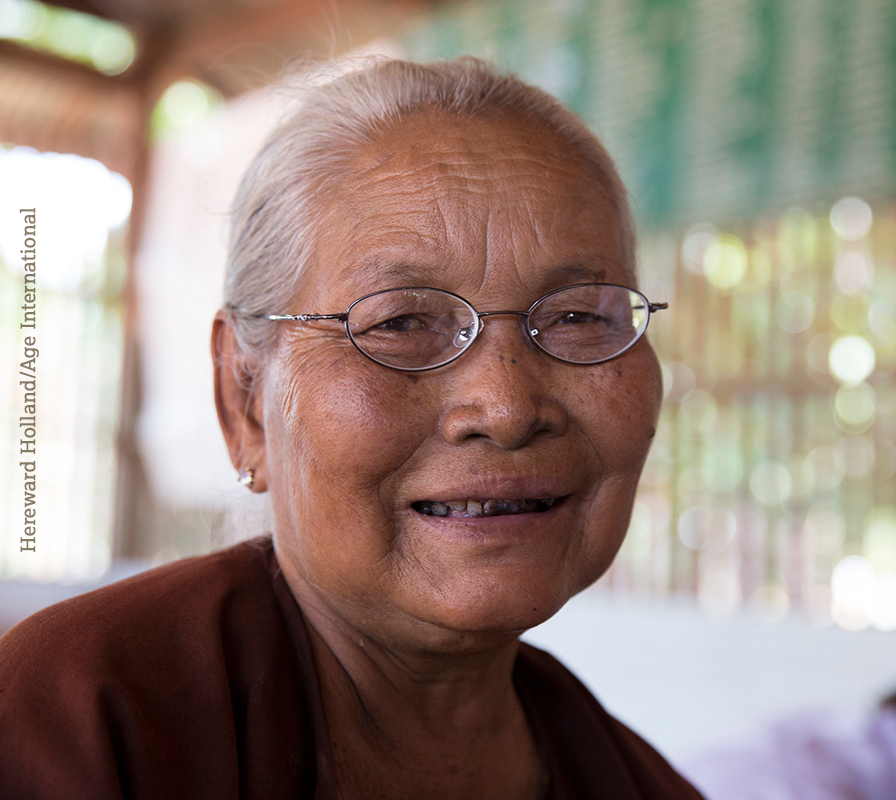On 28 September 2018, a 7.4 magnitude earthquake hit Donggala, in the province of Central Sulawesi, Indonesia. It triggered a tsunami that struck Palu Bay and the western coast of the Donggala Regency.
The official death toll stands at 2,081, while another 1,309 are recorded missing, 4,438 as severely injured and 206,494 internally displaced. Homes and other buildings collapsed, hospitals have been damaged and transport has been disrupted in the areas. The Indonesia Government has been leading the response, with support from local and international NGOs and the UN.
HelpAge International responds to humanitarian emergencies in ways that meet the needs of older people and ensures their rights are upheld, even in the most challenging circumstances. Working with our partners in Indonesia, we are aiming to provide healthcare, water and sanitation, and essential and often life-saving items such as blankets, mattresses, clothing and cooking equipment.
Rapid needs assessment for older people
 We have worked with local partners to carry out a rapid assessment of older women and men’s needs to inform our response and help us act most effectively.
We have worked with local partners to carry out a rapid assessment of older women and men’s needs to inform our response and help us act most effectively.
A rapid needs assessment of older people (RNA-OP) was conducted in October 2018. A total of 425 older people from the seven most affected communities were interviewed individually to understand their specific needs. The data was used for needs analysis and to inform a further response programme. The results showed that accessing enough food, and being able to do so safely, was the highest priority for older people and several reasons contribute to this. Besides the fact that many older women and men were unable to reach humanitarian services alone and had to rely on their family and friends for support to meet their basic needs, there were concerns about violence, abuse as well as privacy using public washrooms. Significant gender differences were reported on the topics of psychosocial wellbeing and their ability to cope with their current situation. Another important issue for older people was regular medication for chronic conditions.
The findings of the RNA raise significant concerns about the dignity of older people and their right to access humanitarian assistance in a dignified and inclusive way. Key recommendations for an inclusive response were provided and can be found in the report ‘Rapid needs assessment of older people affected by the earthquake and tsunami in Sulawesi, Indonesia‘.
During the ongoing emergency phase, HelpAge and local partner Yakkum Emergency Unit, with funding from Age International, HelpAge Germany and the Disasters Emergency Committee, is providing outreach health support, homecare, psychosocial support, mosquito nets, water filters and age-assistive devices. We are also supporting older people in getting their documents and ID cards.
Livelihood assessment of the disaster-affected communities
 After six months of emergency responses, HelpAge and the partner are now preparing for a recovery phase.
After six months of emergency responses, HelpAge and the partner are now preparing for a recovery phase.
A livelihood assessment was conducted in seven villages of Palu to find out about the readiness to take up livelihood activities among older people.
Before the disaster, many older people were the key or sole earning members of the family. After the loss of livelihood post disaster, the uncertainty on income generation is a concern.
The assessment was designed to gain first hand information on various key aspects such as the livelihood options available in the villages, scale of loss in terms of employment and related activities, available skills, traditional knowledge, natural resources and source of financial support in these villages. The assessment also included a quick survey with the local market and other retail places to collect information on local produces, their sources and involvement of the affected villagers in these existing value chains.
During the assessment, older people have shown a keen interest in participating in capacity building programmes to enhance their skills. It was found that villagers have entrepreneurial mindsets and willing to engage in activities
The study suggests strengthening entire value chain, from organising livelihood group, building capacity to marketing as well as connecting villagers with financial institutions. With these finding, HelpAge is developing a detailed work plan for the delivery of effective support and sustainable benefits to older people in the affected communities.

